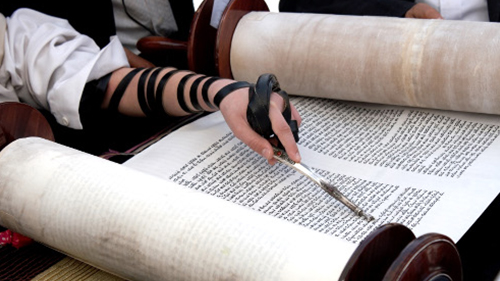Ki Tavo – When you enter. When? May we ask Why?
In this portion we find the people of Israel told what to do when they finally enter the land of Israel after wandering in the desert for forty years.
After they settle in they are told to make another entrance, into the field or orchard and choose the first fruits and bring them to Jerusalem.
And yet another entrance is demanded of the people of Israel in this portion, entering into the covenant. An elaborate ceremony is described to be done immediately after crossing the Jordan river into the land of Israel.
How do we enter Israel? How do we leave Israel for many of us who do not live in Israel on a day to day basis? How do we live in Israel? How do we love Israel?
Recently, I listened to a song ‘Asiti’ (‘I Made / I Did’) of Israeli performer Jimbo J. The opening line of the song was ‘What does it mean ‘I served’? I did the army!’. This song showed how strong is the influence of English language on Hebrew. In Hebrew we find a long list of not-used verbs, replaced by a pair of “do/make” and an appropriate noun. So many Israelis do the army (and don’t serve in it), do the Jerusalem marathon (and don’t run it) etc.
On June 27 2018, the Supreme Court in the UK ruled that heterosexual couples may not be discriminated against concerning civil partnerships, which were originally established by the UK government for same-sex couples. Ever since the UK’s Marriage (Same Sex Couples) Act of 2013, heterosexual couples have been calling for equality, too. Following that Supreme Court ruling, the hope is that the 2004 Civil Partnership Act will be extended to heterosexual couples. So: equal marriage, equal civil partnership: equal justice.
Re’eh means to see. Everything which you need to SEE in life, a recipe for life as a Jew is written in Re’eh. Can a blind person see? Can a deaf person hear? What is the meaning of seeing? If you were sent to a desert island and had a few pages of “Re’eh” with you, that would be enough to guide you in a Jewish way of life.
This week’s parashah, Va’etchanan, continues Moses’ first address to the people of Israel as they are encamped on the east side of the Jordan River, preparing to enter the Promised Land. This portion contains the repetition of the Ten Commandments (Deuteronomy 5:6-18) and the first paragraph of the Sh’ma (6:4-9), but it also includes many other significant teachings that deserve our attention.
or longer than I have been alive, the State of Israel has existed. The borders have changed over the years, but I have never known a world where Israel did not exist. Orthodox liturgies pray for the coming of the Davidic Messiah, the rebuilding of the Temple in Jerusalem, and the re-establishment of the sacrificial cult. Among non-orthodox Jews, even if our liturgy contains references to “moshiach ben David” the call to rebuild and re-establish ancient sacrificial rites is often deemed as little more than symbolic. So, what does Tisha B’Av mean to post-enlightenment Jews who may not believe in a personal messiah, have never known a world without Israel, who do not see themselves returning to animal sacrifices?
For the last number of years, the summer edition of our synagogue magazine has focused on the Jewish travel experiences of our members. As well as boasting as a member, Cathy Winston, the travel editor for the British Jewish Chronicle, congregants wrote about Crete and Corfu, Dubrovnik and Copenhagen and the Judah Hyam synagogue in New Delhi. Numbers 33, the opening chapter of the sidrah, Mase’ei reads like a travel itinerary, the stages of the Israelites wanderings in the wilderness.
Step by step, the Torah introduces us to a new generation of leaders of Israel. Often, when we speak of new leadership, we use to project great hopes: that the new one will be correct, ethical, that he/she will leads us to a time of justice, prosperity and optimism. But not always the new is […]
Parshat Balak was the Torah portion read on my first Shabbat as rabbi of the congregation I would go on to serve for 35 years. I observed then that there must be something instructive — and maybe cautionary — to be gleaned from the coincidence of assuming this new pulpit on the Shabbat when we read a Torah portion that prominently features a talking ass. My new congregation laughed – with me rather than at me, thankfully. But the truth is, that among the insights found in this complicated Torah portion, is this: what we say reveals a great deal about who we are.
In this week’s Torah portion, Chukkat, we read: “The community was without water and they joined against Moses and Aaron”. This reaction from the community is not a big surprise. After Miriam’s death earlier in the chapter, finding water became one of the greatest concerns for the people of Israel.


